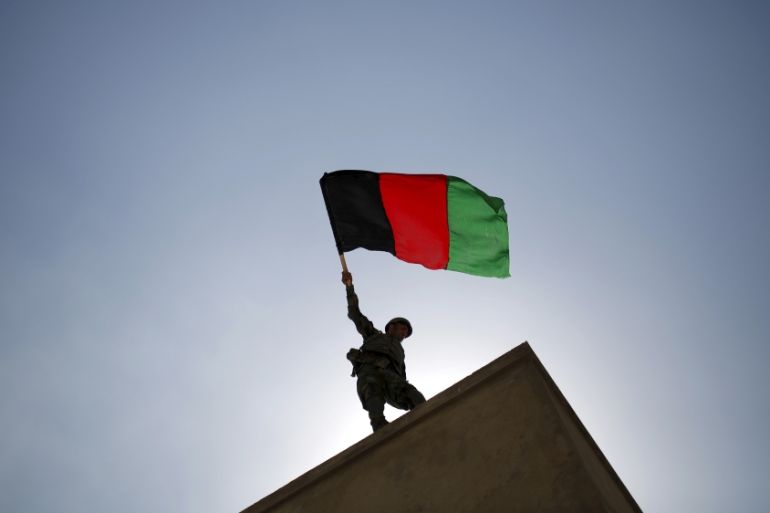US watchdog: Afghanistan gov’t weakened ahead of Taliban talks
The upcoming intra-Afghan dialogue is the first high-level meeting between the two after years of fighting.

A watchdog in the United States has warned that “systemic” corruption within the Afghan government is weakening its bargaining position in upcoming peace negotiations with the Taliban, even as the armed group said it was ready and had compiled its agenda for the long-awaited talks.
John Sopko, Special Inspector General for Afghanistan Reconstruction, said the Taliban and other fighters underscored the government’s corruption, using it to “undermine public support for the government, garner recruits to their cause and weaken the government’s bargaining position during future peace negotiations”.
Keep reading
list of 4 itemsPhotos: Tourist numbers up in post-war Afghanistan
Taliban ban on girls’ education defies both worldly and religious logic
Afghanistan calls for ‘respect’ after Cricket Australia snub
“It is the most insidious threat the Afghan government faces because it saps the support of citizens who are trying to go about their daily work, feed their families, and live free of fear and intimidation,” Sopko told a monitoring group known as Integrity Watch Afghanistan on Wednesday.
Meanwhile, about 50 civil society activists in Kabul rallied on Thursday against corruption, urging the International Monetary Fund to rescind a $220m loan given last month to the Afghan government to help mitigate the impact of the coronavirus pandemic.
|
|
Afghanistan has reported more than 30,000 cases, including 675 deaths, but testing is severely limited, and experts say the number of infections is likely much higher.
The protesters said the government has already wasted billions of international money. Najibullah Azad, who led a group of lawyers, doctors and economists in the protest, said government corruption is devouring international money and that he feared the IMF’s $220m would disappear.
Sopko criticised Afghan President Ashraf Ghani’s government, saying it only paid lip service to fighting corruption, “ticking off the boxes” rather than implementing changes and arresting some of the worst offenders.
“The private sector and particularly international investors – who care far more about their own bottom line – will not overlook Afghanistan’s failure to tackle the corruption challenge,” he said.
“Afghanistan’s leaders must come to realise that in the end, private sector investment will matter far more to their country’s future than international donors, because after 19 years of war, foreign governments, including the United States, are growing weary of paying Afghanistan’s bills.”
https://twitter.com/IntegrityWatchA/status/1275769535350681606?ref_src=twsrc%5Etfw
International donors cover 75 percent of Afghanistan’s operating budget and the US alone pays $4bn annually to finance the war-torn country’s military and security forces.
Ghani’s spokesman Sediq Sediqqi objected to Sopko’s criticism, insisting that “the government has done a lot to tackle corruption and that has to be seen”.
No date has yet been set for negotiations but Deborah Lyons, the UN special representative to Afghanistan, told the UN Security Council on Thursday that she was “cautiously optimistic” the talks could start in July in Qatar, where the Taliban maintains a political office.
One of the obstacles to the start of the negotiations has been the exchange of prisoners, envisaged under a deal the Taliban signed with the US at the end of February.
That accord – and the Afghan-Taliban talks that were meant to follow – are seen as Afghanistan’s best chance for peace and an opportunity for US and NATO troops to leave the country after nearly two decades of fighting.
The Taliban’s political spokesman, Suhail Shaheen, told The Associated Press that the Afghan government has so far released 3,500 Taliban prisoners.
The US-Taliban deal calls for 5,000 Taliban prisoners to be freed by Kabul. It also said the Taliban should free 1,000 government personnel, including military men, they hold captive.